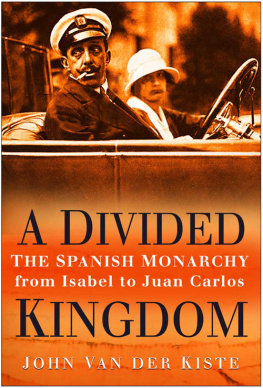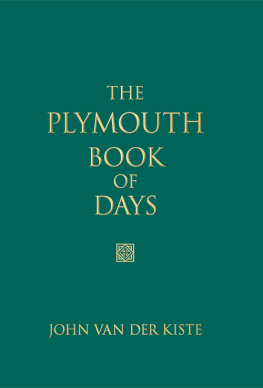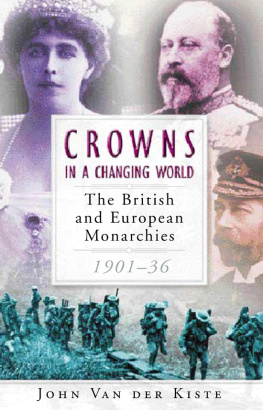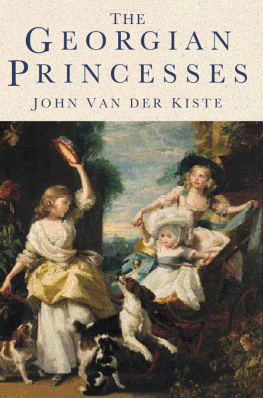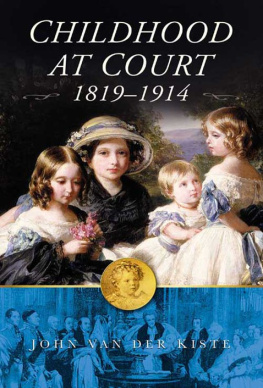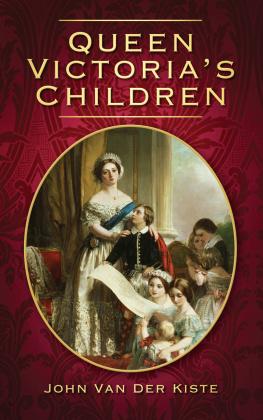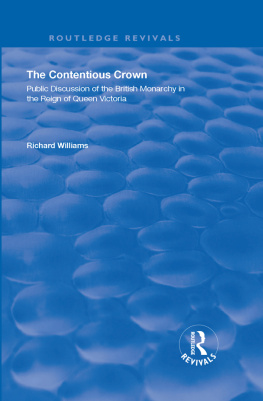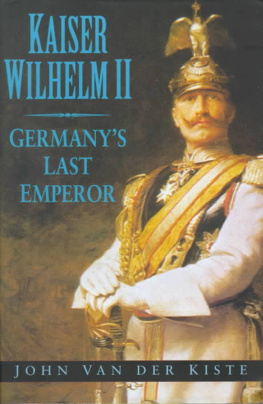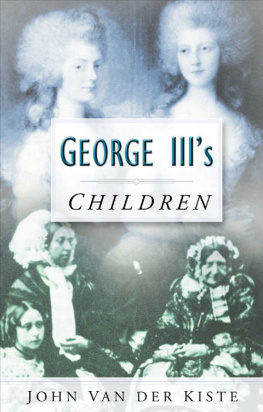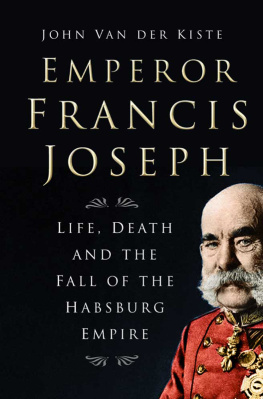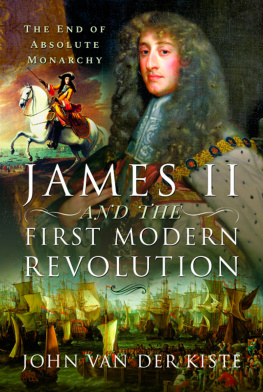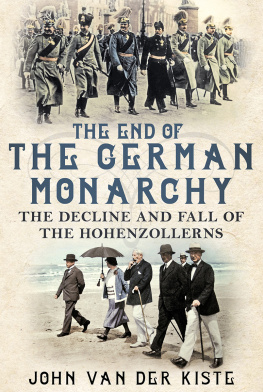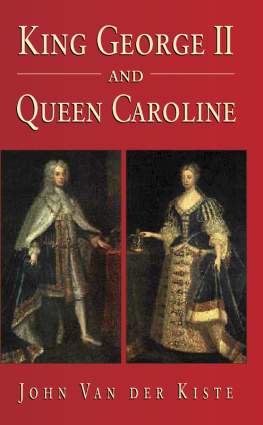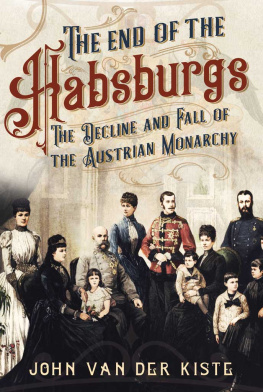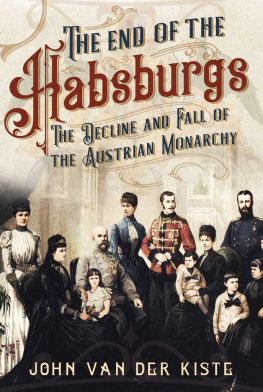A D IVIDED K INGDOM
T HE S PANISH M ONARCHY
from Isabel to Juan Carlos
J OHN V AN DER K ISTE
First published in 2007
The History Press
The Mill, Brimscombe Port
Stroud, Gloucestershire, GL 5 2 QG
www.thehistorypress.co.uk
This ebook edition first published in 2011
All rights reserved
John Van der Kiste, 2007, 2011
The right of John Van der Kiste, to be identified as the Author of this work has been asserted in accordance with the Copyrights, Designs and Patents Act 1988.
This ebook is copyright material and must not be copied, reproduced, transferred, distributed, leased, licensed or publicly performed or used in any way except as specifically permitted in writing by the publishers, as allowed under the terms and conditions under which it was purchased or as strictly permitted by applicable copyright law. Any unauthorised distribution or use of this text may be a direct infringement of the authors and publishers rights, and those responsible may be liable in law accordingly.
EPUB ISBN 978 0 7524 7083 2
MOBI ISBN 978 0 7524 7084 9
Original typesetting by The History Press
Contents
Introduction
E arly in 1931 King Alfonso XIII of Spain asked his Prime Minister, Admiral Aznar, to form a government and prepare the country for new municipal and parliamentary elections. He then went to England for a short holiday. As a cousin by marriage of King George V of England, he was part of the family network of monarchs who could claim a close connection with Queen Victoria and King Edward VII as the grandmother and uncle of Europe respectively.
Spain had recently been through difficult times. Parliamentary government under General Primo de Rivera (my Mussolini, as the King had called him with admiration) had been suspended for several years, and though the largely benevolent despotic regime had brought considerable economic benefits to the nation, it had been unpopular, and culminated in the ailing Generals resignation and death soon afterwards.
The King had hoped to prepare the way for a peaceful return to constitutional government and a reign lasting many more years. When the elections held in April 1931, soon after his return to Spain, showed an unexpected swing towards the socialist and republican parties, especially in the large cities, he was unnerved. It was, he remarked sadly, as if he had gone to make a visit to a friend, and on arriving at the house found that he was dead. Believing that antimonarchist fervour would soon subside, he decided to leave Spain for a while, and consented to a suspension of his powers, while insisting that he would not abdicate.
It was yet another twist in the remarkable saga of the Spanish Bourbons, who had reigned with one brief interruption since the beginning of the eighteenth century. King Alfonso XIIIs grandmother, Queen Isabel, had been driven from the kingdom some sixty years earlier, and a short interregnum had given way to the far from unanimous election of a King from the House of Savoy, followed by the establishment of a republic and the subsequent recall of Isabels son, who reigned as King Alfonso XII.
Uniquely among the nations of Europe, King Alfonso XIIIs departure left Spain a republic or more accurately, as would be confirmed some years later, a monarchy without a king. Some thirty-eight years after the King and Queen went into exile, their grandson was chosen as king-in-waiting, thereby and somewhat controversially bypassing his father who was still alive and in good health, to wait in the wings and succeed General Franco, the head of state, on the latters death. After a republican interval of forty-four years, in November 1975 Spain was once again a kingdom.
The aim of this book is to trace the family vicissitudes from the Napoleonic era onwards, through the lives, characters and reigns of the kings, queens and their consorts who reigned over the country and, notwithstanding their faults, never completely forfeited the love and respect of an often volatile but fundamentally generous and forgiving country that always as a whole held the historical tradition of monarchy in high regard.
The names of Spanish royalty require some explanation. Members are not princes or princesses, apart from the heir to the throne, who is Prince or Princess of Asturias; the others are Infantes or Infantas. The title Prince of Asturias, the Spanish Crown Prince, was created in the fourteenth century by King Juan I of Castile. The style of Infante or Infanta or grace can be granted by the Spanish monarch to close family members, or members of foreign dynasties who marry into the family.

I wish to acknowledge the gracious permission of Her Majesty The Queen to publish material from the Royal Archives, Windsor. For permission to quote an unpublished letter, I am grateful to Ian Shapiro of Argyll Etkin Ltd. For regular advice, support and the loan of various materials I would like to thank Sue and Mike Woolmans, Coryne Hall, Karen Roth, Robin Piguet, Ricardo Mateo Sainz de Medrano and Art Beche; and for access to their collections I am indebted to the staff at Kensington and Chelsea Public Libraries. Last but not least, my thanks as ever go to my wife Kim, my mother Kate and my stepdaughter Laura for their constant encouragement and reading through the draft manuscript; and to my editors at Sutton Publishing, Jaqueline Mitchell and Anne Bennett for all their hard work in seeing the project through to completion.
This book is respectfully dedicated to the memory of Gracie Cole Geldard.
ONE
A child queen
B y 1808 the star of Napoleon Bonaparte, self-proclaimed Emperor of the French whose mastery over much of Europe had been virtually unchallenged, was beginning to wane. It was the year that he sent troops into Spain, and the British government responded by sending an army into the Iberian peninsula in order to encourage Portuguese and Spanish resistance. In March an uprising in Spain led to the abdication of King Carlos IV, and the throne passed to his son, who ascended as King Ferdinand VII. Within the week Carlos had retracted his abdication, claiming it had been made under duress. Nevertheless Ferdinand was still regarded as the rightful sovereign, until he was forced to abdicate by Napoleon in May, and Carlos was again King. Almost at once Carlos abdicated a second time, surrendering his throne to Napoleon, who proclaimed his brother Joseph King of Spain as Jos I a month later. Early French victories in the war soon gave way to defeat; after the battle of Vittoria in June 1813 Napoleon was driven out of Spain, and in December that year the Bourbon monarchy was restored with Ferdinand on the throne a second time. With the death of his father in January 1819 he could consider himself secure on the throne at last.
In 1829 Ferdinand lost his third wife, Queen Maria Amelia, born a princess of Saxony. His second wife Isabel, a Portuguese princess, had died in childbirth in 1818, leaving a daughter who lived for only four months. Neither of his first two marriages had produced any surviving children. If he died without issue, the throne would pass to his younger brother Don Carlos. Ferdinands cruelty, religious intolerance and despotism had made him unpopular, but his brother was disliked even more. Don Carlos, the Spaniards said, was more Catholic than the Pope, and more royalist than the King.
Nevertheless Carlos had his positive qualities. It was said that he was always honest, the only member of the royal family who never broke his word and always paid his bills, and there were many in Spain who would have liked him to succeed Ferdinand on the throne. In 1825 there was a small but unsuccessful rising in his favour, and two years later a body calling itself the Federation of Pure Royalists issued their own manifesto, calling on him to become King. He kept his distance, letting nobody doubt his loyalty to the Spanish crown, if not to his brother. Perhaps he assumed that as his brothers heir, he would inherit the throne before long. With a forceful wife who saw herself as the next Queen of Spain, and three young sons, they would surely see that the Bourbon dynasty remained in safe hands.

